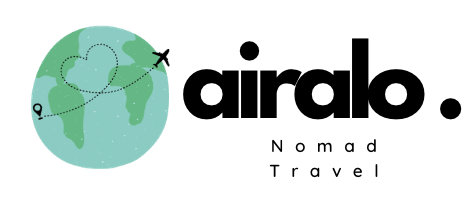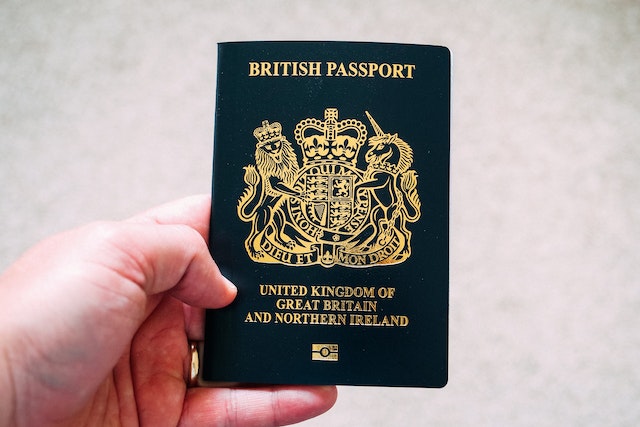When it comes to pursuing the digital nomad lifestyle in the United Kingdom, selecting the right visa type is crucial. Digital nomads work remotely while traveling and have unique visa needs. The best visa for a digital nomad in the UK largely depends on their specific circumstances and how long they intend to stay. The UK offers several visa options, including tourist visas, student visas, and work visas, each with its own set of rules and requirements.
One popular choice is the Standard Visitor Visa, which allows short stays for business purposes. Another most suitable visa type for digital nomads is the Tier 1 (Global Talent) Visa. This visa is open to individuals with exceptional talent in academia, arts, culture, or digital technology. It initially grants a stay of up to five years, with the possibility of renewal, and a pathway to permanent residency after five years.
This article will explore the different visa types available in the UK and help digital nomads navigate the complexities of choosing the best visa to suit their lifestyle and work needs.
Types of UK Visas for Digital Nomads
There is no specific digital nomad visa in the UK, but the Standard Visitor Visa is generous in that it lets foreigners stay in the UK for up to six months. Several longer visas are available that some digital nomads may be eligible for. Details of all these visas are given below.
Standard Visitor Visa
The UK’s Standard Visitor Visa is the typical tourist visa, allowing you to stay in the country for up to six months. While you can’t work for a UK company on this visa, there are no specific restrictions on doing remote work for companies and clients in other countries.
Suppose you want to visit the UK as a tourist while continuing to work remotely. In that case, you should be eligible for this visa if you can prove you have enough money to support yourself during your stay and intend to leave the UK when your visa expires with a return or onward ticket.
You can apply for this visa online up to three months before your travel date through the UK digital visa scheme. Some citizens, like those from the United States, Canada, and Australia, don’t need to apply for a visa in advance; they can get it upon entry.
The Standard Visitor Visa is valid for six months and costs £100 for the application. You can also apply for longer-term visas for two, five, or ten years, but you can still only stay in the UK for six months during each visit, followed by six months outside the country before returning.
Young Mobility Scheme Visa
The Young Mobility Scheme Visa is designed for young professionals aged 18 to 30 (or up to 35 for New Zealand citizens) who want to live and work in the UK for up to two years. You can work remotely, seek employment in the UK, or combine both options.
This visa is available to citizens of specific countries. People from Australia, New Zealand, Canada, Monaco, San Marino, and Iceland can apply for it at any time.
Citizens of Hong Kong, Japan, South Korea, and Taiwan must participate in a biannual lottery system to limit the number of applicants. If you’re selected in the lottery, you have 30 days to submit your visa application.
For young professionals from India, there is a similar lottery system. You’ll need to pay a fee of £259 to apply for this visa. Additionally, you must pay a healthcare surcharge of £470 per year pro rata when you apply. You’ll also need to demonstrate that you have at least £2,530 in personal savings to support yourself during your initial months in the UK.
High Potential Individual Visa
The HPI visa is a newly expanded UK graduate visa that welcomes international graduates from select universities worldwide. This visa lets you remain in the UK for a certain period following the completion of your studies.
To qualify, you must have obtained a Bachelor’s, Postgraduate, or PhD degree within the past five years from a university approved by the UK government. The list of eligible universities is updated annually. It includes renowned institutions like Harvard, Columbia, Cornell, Duke, and CalTech in the USA, the University of Melbourne and the University of Queensland in Australia, McGill, the University of Toronto, and the University of British Columbia in Canada, as well as several universities in China, Japan, and Singapore.
The list also encompasses institutions like Paris Sciences et Lettres in France, the Technical University of Munich in Germany, the Karolinska Institute in Sweden, and both EPFL and ETH Zurich in Switzerland. Apart from meeting educational requirements, you need to show you’re good in English and have at least £1,270 in savings to support yourself when you come to the UK.
For a successful application, you’ll need to pay a £715 application fee, a £210 charge for Ecctis to verify your qualifications, and the UK healthcare surcharge, which costs £624 per year, calculated based on the duration you’ll be
Work Visas
Many digital nomads may find obtaining a UK work visa challenging, as it typically requires a job offer from a UK company willing to sponsor your application. However, there are a few UK work visa options that could be appealing to some digital nomads:
Scale-Up Work Visa
The Scale-Up Work Visa is designed to assist UK start-ups in attracting the talent they need to grow. It has a more accessible threshold compared to other work visas. To qualify, you need a job offer from an eligible start-up for a minimum of six months, and upon acceptance, you’ll receive a full two-year visa. After completing your contract with the start-up, you can live and work in the UK for two years. The application fee is £715, and you must also pay the UK healthcare surcharge.
Start-Up Visa
The Start-Up Visa targets individuals who wish to establish their own start-up in the UK. This visa is valid for two years, allowing you to live and work in the UK while developing your business. However, a UK higher education institution or an approved business organization must endorse your business idea as new, innovative, and viable. The application fee for the Start-Up Visa from outside the UK is £378, and you must pay the UK healthcare charge upfront.
Innovator Visa
The Innovator Visa operates on similar principles as the Start-Up Visa but with stricter criteria. It allows you to progress from the Start-Up Visa to the Innovator Visa. Like the Start-Up Visa, you need to have your business idea approved, but the requirements are more stringent, and you must demonstrate significant progress in developing your business. The Innovator Visa is initially granted for 3 years and is renewable. The application fee for this visa from outside the UK is £1,036, and you are also required to pay the UK healthcare surcharge.
These visa options provide some flexibility for digital nomads seeking opportunities in the UK, particularly if they have innovative business ideas or are willing to work with start-ups.
Global Talent Visa
The Global Talent Visa is for individuals recognized for their exceptional accomplishments in academics, arts, culture, or digital technology. You can initially stay in the UK for up to five years, with the option to renew. After five years, you’re eligible to seek permanent residency. While in the UK, you can work, study, or start your own business.
In order to apply for endorsement, there’s a £456 fee; if you get endorsed, there’s a £167 visa application fee. You’ll also need to pay the UK healthcare charge.
Eligibility Requirements for UK Visas
When applying for a UK visa, applicants need to meet specific eligibility criteria. These requirements may depend on the type of visa applied for. Here are some general eligibility requirements:
Proof of Financial Resources
Most UK visas require applicants to prove that they have sufficient funds to support themselves during their stay in the UK. The amount of funds required may vary depending on the visa type and the length of stay. Acceptable evidence includes bank statements, certificates of deposit, or a letter from a financial institution.
Proof of English Knowledge
Many UK visas require applicants to demonstrate their proficiency in the English language. This can be done through a degree-level academic qualification taught in English or by passing a Secure English Language Test (SELT). Citizens of English-speaking countries may be exempt from this requirement.
UK Healthcare Surcharge
Anyone traveling to the UK on a long-term visa is required to pay the UK healthcare surcharge. This surcharge supports the National Health Service (NHS) and provides access to healthcare services. The amount of the surcharge depends on the length of stay and must be paid upfront with the visa application.
Partners and Dependents
In some visa categories, applicants can apply to bring their partners and dependents to the UK. Additional fees and requirements apply to each individual. Partners may be eligible to work in the UK with few restrictions.
It is important to review the specific requirements for each visa type before applying.
How to Apply for a UK Visa as a Digital Nomad
The application process for a UK visa as a digital nomad involves several steps. Here is an overview of the process:
- Determine the right visa type based on your eligibility and needs.
- Gather the necessary documents and evidence to support your application, such as financial statements, proof of English proficiency, and a valid passport.
- Fill out the online application form on the UK visa website.
- Submit the application fee and, if necessary, the healthcare surcharge payment.
- Schedule an appointment for biometric data collection if required.
- Submit your application and supporting documents.
- Track the progress of your application online.
- Wait for a decision regarding your visa application.
Applying for a visa well ahead of your intended travel dates is crucial, given that processing times may fluctuate.
Processing Time for UK Visa Applications
The duration for processing UK visa applications varies based on the visa type and the volume of applications under review. On average, the processing time is around three weeks. However, it is advisable to apply as early as possible to allow for any unforeseen delays. It is also important to note that some visa types may have longer processing times.
Conclusion
In conclusion, while the United Kingdom does not currently offer a specific digital nomad visa, there are visa options that allow remote workers to live and work in the country. By understanding the different visa types, eligibility requirements, and the cost of living, digital nomads can make informed decisions about their stay in the UK. Whether exploring the vibrant streets of London, enjoying the seaside charm of Brighton, or immersing yourself in the rich history of Edinburgh, the UK offers a diverse and exciting experience for digital nomads.





